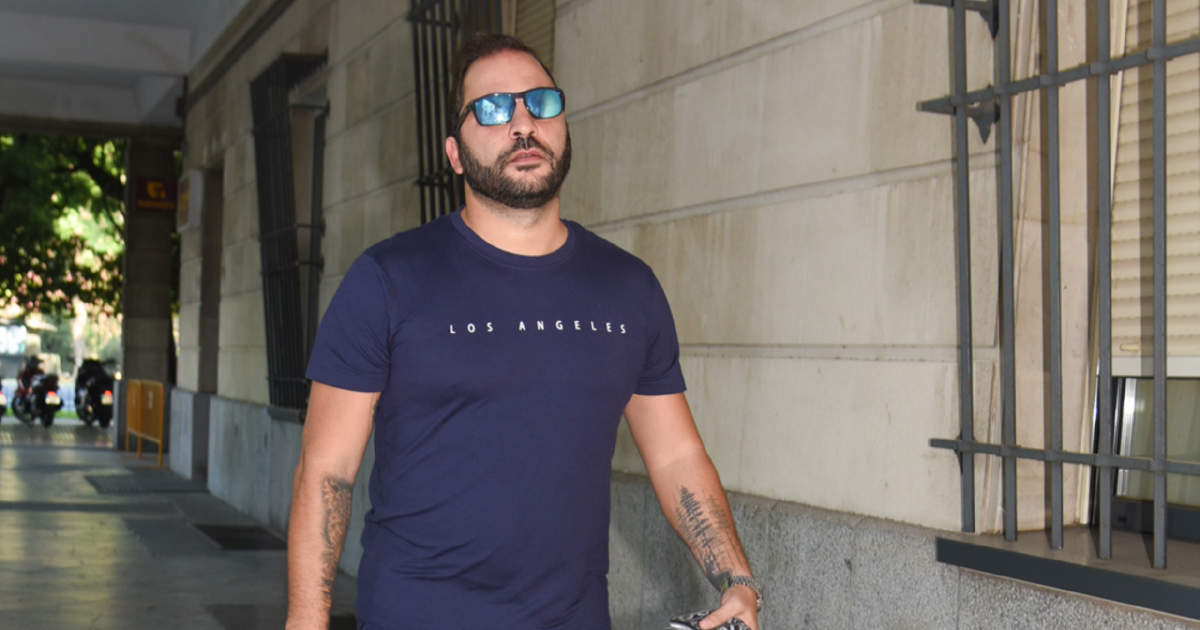Since the robbery came to light in the house of María del Monte and Inmaculada Casalthe life of Antonio Tejado (37 years old) changed completely. The name of the singer's nephew appeared as one of the alleged culprits of the event that left the artist and the presenter traumatized. Some time later, Antonio entered provisional prison and was released some time later. released without bail. Since then, he has gone to court several times a month and it is in those moments that you can see the change he has undergone both physically and at the attitude level.Antonio Tejado, Before the robbery occurred at his aunt's house, he was seen at various events in Seville, it was not surprising to see him enjoying the Sevillian night with friends, he kindly attended to the press, he lavished himself on television… However, this changed since his name was on the list of alleged culprits and with everything that came after. Since then, María del Monte's nephew He prefers to maintain silence and seriousness and has even had the occasional gesture commented on. To this we must add that physically he has also changed from a few months until today. To understand this physical and mental change in Antonio Tejado, We have spoken with the psychologist María Padilla. The founder of Capital Psychologists has referred to the process that María del Monte's nephew is experiencing as “the psychological impact of adversity.” As the expert has stated, “when a person goes through adverse experiences of great impact. “such as legal problems, prison, or a public scandal, the psychological and physical effect can be significant.” From there, Padilla has made an exhaustive analysis of a situation that is most complicated for him. The first thing the psychologist has done has been to explain that situations like the one Antonio Tejado is experiencing “tend to trigger radical changes in behavior, appearance, and coping the day to day. The effects can include physical deterioration, social isolation and a period marked by emotional survival.” So, the expert asked herself “what is behind these changes and how can a person find the path to recovery?” From there, he explained the process in four sections.
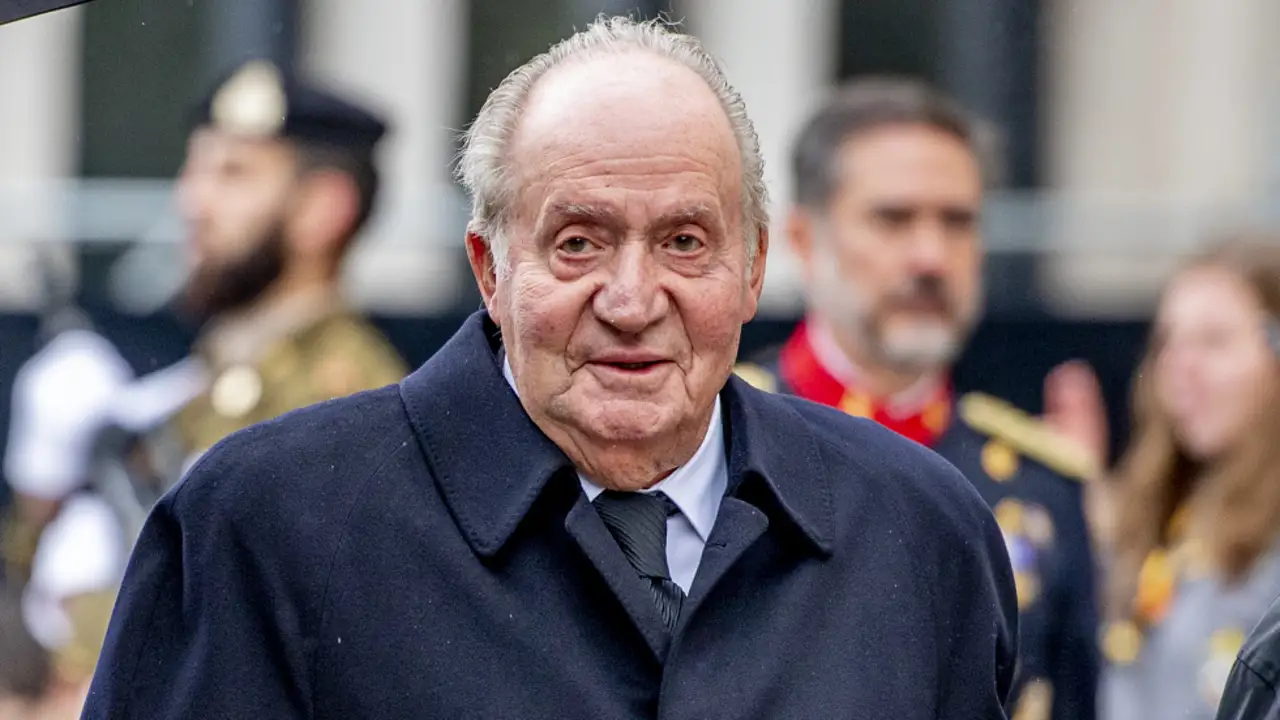

Psychologist María Padilla talks about the weight of stress and physical deterioration
Regarding physical change, María Padilla has made reference to how stressful or traumatic situations translate into physical deterioration and personal neglect. Something that can be seen in the appearances of Antonio Tejado every time he goes to the courts of Seville and about which the expert has said that “the body and mind are deeply connected, and a traumatic or stressful experience can manifest physically. “It is common to observe weight gain or personal neglect in people who have gone through difficult circumstances.”
 Gtres Regarding weight gain, Padilla has commented that “factors such as chronic stress, anxiety and changes in eating habits can lead to a weight gain. “Cortisol, the stress hormone, contributes to greater appetite and fat accumulation, especially when accompanied by a more sedentary lifestyle.” Regarding personal neglect, the psychologist has mentioned that “during these periods, taking care of one's physical appearance can take a backseat. This may be due to lack of motivation, apathy or simply prioritizing emotional management over other aspects of life.”
Gtres Regarding weight gain, Padilla has commented that “factors such as chronic stress, anxiety and changes in eating habits can lead to a weight gain. “Cortisol, the stress hormone, contributes to greater appetite and fat accumulation, especially when accompanied by a more sedentary lifestyle.” Regarding personal neglect, the psychologist has mentioned that “during these periods, taking care of one's physical appearance can take a backseat. This may be due to lack of motivation, apathy or simply prioritizing emotional management over other aspects of life.”
The expert explains silence as a strategy in a case like that of Antonio Tejado
Secondly, María Padilla has spoken of “silence and isolation as a strategy”. Regarding that silence that now characterizes Antonio Tejado and that has nothing to do with the attitude he used to have in front of the cameras, he explained that from a psychological point of view, “in the face of a crisis of great magnitude, many people choose to retire.” social. This behavior can have various interpretations. Some interpretations that María, in this case, has divided into three. First she has spoken of emotional protectionensuring that “isolation can be a way to avoid judgment or external criticism, protecting oneself from the additional harm that public exposure can cause.” He then referred to at the time to reflect, stating that “retiring can be an opportunity to process what happened, rethink priorities, and make decisions about how to rebuild your life.” Finally, he mentioned apathy or disconnection. In this sense, he explained that “in other cases, isolation reflects a lack of interest in the social environment, a sign that the person is struggling to deal with their emotions and their new reality.” 

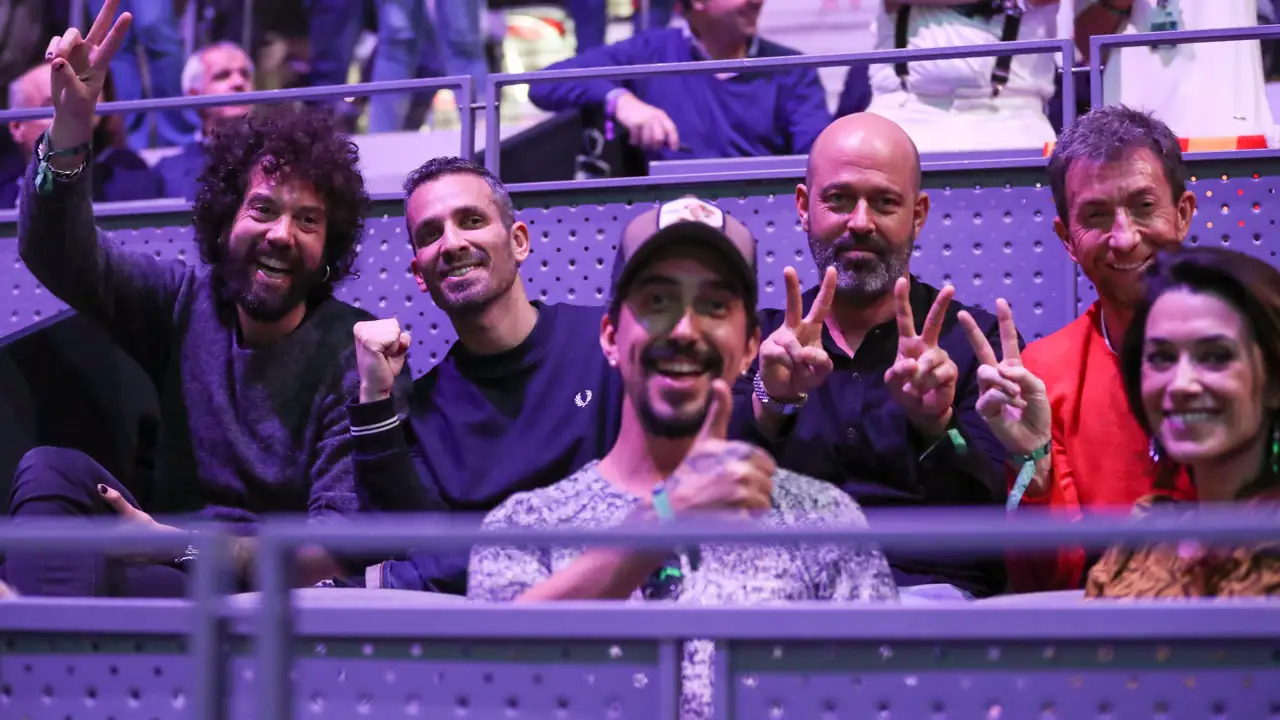

Psychologist María Padilla analyzes the challenge of surviving that Antonio Tejado faces
To which also María Padilla has referred about the process that Antonio Tejado would be experiencing, is the survival approach adopted by some of the people who are in a situation similar to that of María del Monte's nephew. The psychologist has said that many times, those who find themselves in this situation “focus on dealing with the basics of everyday life, leaving aside long-term goals or aspirations.” Regarding this, he has warned that “this state, although understandable, can lead to a feeling of stagnation or hopelessness if it goes on too long.” Therefore, to make way for a recovery, from the point of view of psychology it would be necessary to break with that path.
 Gtres María Padilla has explained that “Recovery begins with small but significant steps”. Among them, three have stood out. The first, “reconnecting with oneself to identify emotions and seeking to understand the impact of what has been experienced is key to giving meaning to the process.” Afterwards, he highlighted “professional support, specifically psychological therapy, “It can be an invaluable tool for exploring emotions, developing coping tools, and regaining control.” Finally, he alluded to “establishing healthy routines such as reintegrating habits such as exercise, a balanced diet and time for physical and emotional self-care can make a notable difference.”
Gtres María Padilla has explained that “Recovery begins with small but significant steps”. Among them, three have stood out. The first, “reconnecting with oneself to identify emotions and seeking to understand the impact of what has been experienced is key to giving meaning to the process.” Afterwards, he highlighted “professional support, specifically psychological therapy, “It can be an invaluable tool for exploring emotions, developing coping tools, and regaining control.” Finally, he alluded to “establishing healthy routines such as reintegrating habits such as exercise, a balanced diet and time for physical and emotional self-care can make a notable difference.”
The path to personal reconstruction that Antonio Tejado has ahead of him
After talking about all these issues, the psychologist has talked about how a situation like this can be seen as a great opportunity to refloat. The founder of Capital Psychologists has assured that “although physical deterioration and isolation can be signs of a difficult period, they also represent an opportunity to rethink life. Adversities have the potential to become turning points, where a person redefines who they are and what they want from their future.”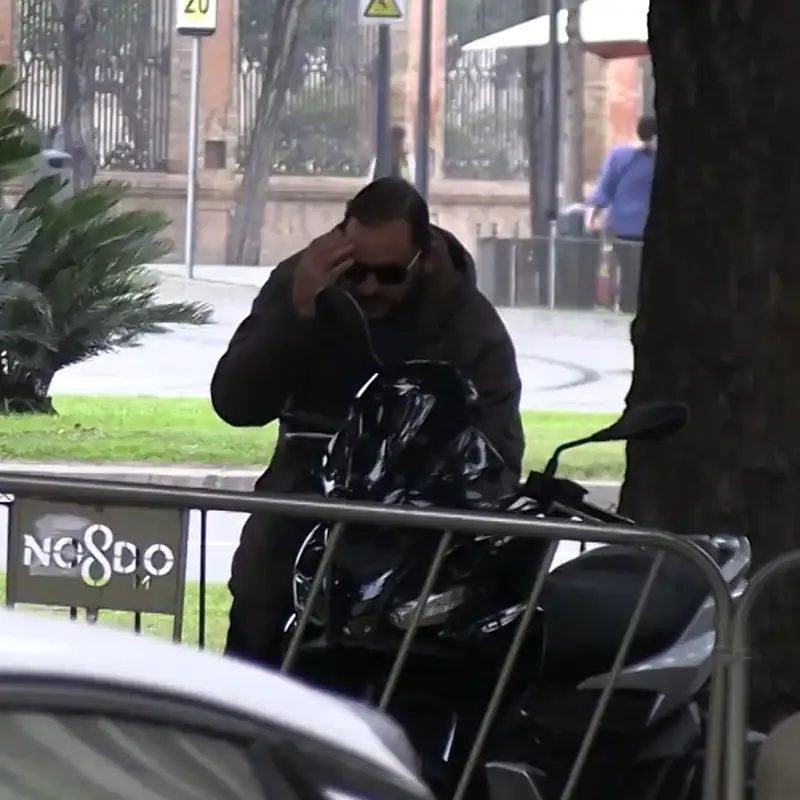

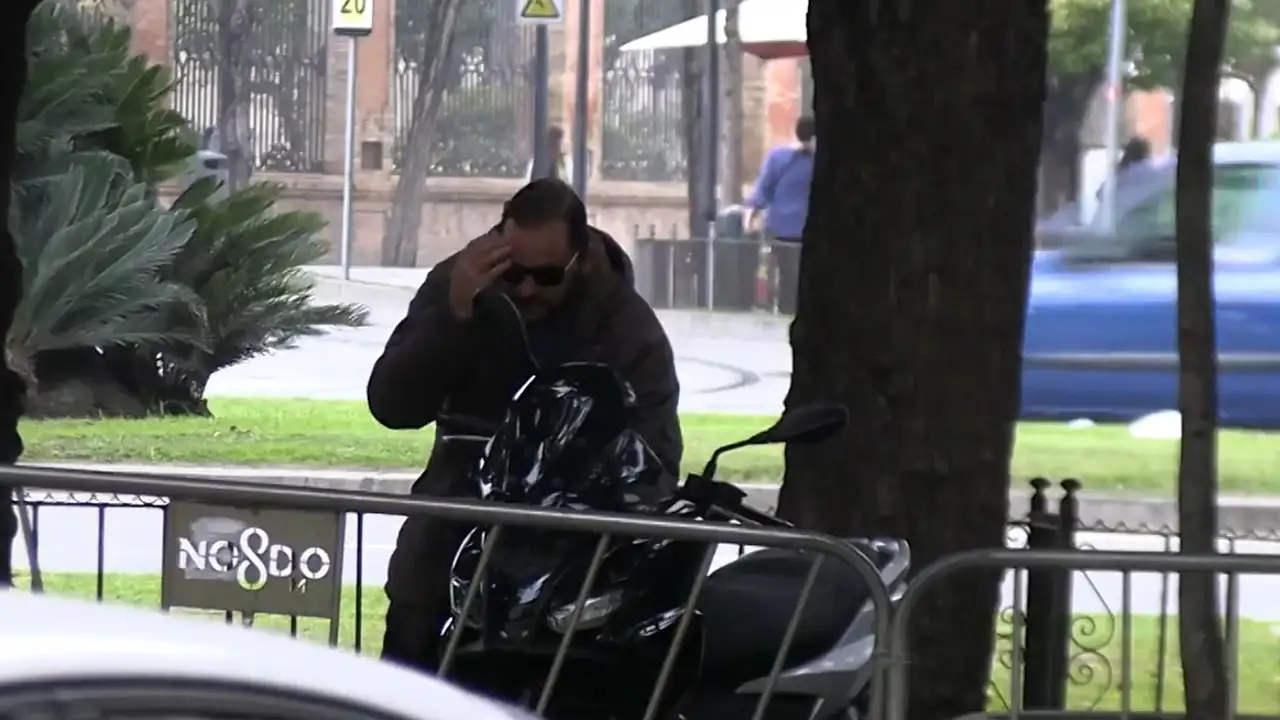
 Regarding this path that Antonio Tejado now has to travel, Padilla has stated that “The process is neither fast nor linear, but every step towards recovery is progress.” So, you talked about key strategies that can be carried out to turn the situation around. Among these strategies, Padilla has highlighted that “rethinking goals to identify small and achievable objectives can restore a sense of purpose, seeking support networks and thus connecting with friends, family or support groups can offer a safe space to share and receive understanding, and accept the past to face mistakes or difficult situations without denying them, but also without allowing them to define the present.”
Regarding this path that Antonio Tejado now has to travel, Padilla has stated that “The process is neither fast nor linear, but every step towards recovery is progress.” So, you talked about key strategies that can be carried out to turn the situation around. Among these strategies, Padilla has highlighted that “rethinking goals to identify small and achievable objectives can restore a sense of purpose, seeking support networks and thus connecting with friends, family or support groups can offer a safe space to share and receive understanding, and accept the past to face mistakes or difficult situations without denying them, but also without allowing them to define the present.”

